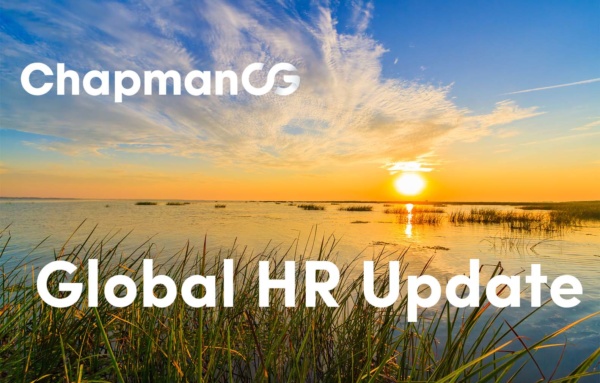In this update, we look at the uniqueness of HR talent in Japan and explore The Chapman Consulting Group’s ongoing mission to identify high-potential HR talent in Tokyo. As one of the most important markets globally for many corporations, getting the HR structure right in Japan is a major priority for many regional and global HR Leaders. “The relatively small number of bi-lingual Japanese and English speaking HR practitioners, coupled with unique labour laws and a strong cultural identity, make this arguably the most difficult market to source international HR talent in the region”, says Matthew Chapman, Managing Director of The Chapman Consulting Group.
Oscar Fuchs, an Associate Director of The Chapman Consulting Group, heads the firm’s Japan HR Practice and has specialised in sourcing international-quality Japanese talent in the Japan HR market since 2006. Fuchs says that the focus for global corporations when appointing HR Leaders in Japan is to find local talent who can handle domestic issues but also think in a regional or global context.
“Every company ideally wants a Japanese HR Leader who can develop his or her in-country Japan HR team but at the same time can sit on the regional HR leadership team and make an active contribution on HR issues elsewhere in the Asia Pacific region or globally”, says Fuchs. “It takes a special breed of HR Leader in Japan to execute this balance. On one hand, they need to be seen to supporting the voices of their team and their business on a local level. And on the other hand they need to inspire the trust of their Regional or Global HR Leader, who can sometimes be tested by Japan’s repeated calls for exceptionalism.”
Where is the Talent?
A Country HR Leader who has reported outside of Japan, either to a Regional HR Leader or a Global HR Leader, will most likely stand a better chance of being able to balance local and global issues more effectively than a Japanese HR Manager who has only previously experienced reporting lines into a Japanese HR Leader. The same applies for HR specialists in Japan in areas such as Compensation & Benefits, Training or Recruitment who may have a dual reporting line where they report locally into someone in Japan but regionally or globally into the Head of the specialisation.
How Important are Brand Names?
The challenge in Japan is that brand name experience is not necessarily an indicator of quality in the HR practitioner in Japan, especially when searching for HR talent that can act locally but think internationally. Irrespective of the brand name, the standard depends more on how tightly the HR team has been pulled into the company’s regional or global strategy. If Japan has been well integrated into the international framework, then chances of the talent being of a high quality is much greater. “It stands to reason if Japan operations have been ‘left to do its own thing’ then the Japanese HR talent is less likely to be international”, says Fuchs.
Why is HR Talent So Expensive?
Apart from the Japanese Yen being very strong against most major world currencies, the other key factor in the expense of high-potential Japanese HR talent versus their counterparts in other geographies is the scarcity of the talent. “It’s a simple demand and supply situation – every multinational company is going after the same small pool of candidates”, notes Chapman. “This drives up salaries, as exceptional HR talent know that they can pick and choose which company is right for them”, says Fuchs.
How do Reporting Structures Differ?
By virtue of Japan being the world’s second largest economy, and perhaps also because of the country’s unique cultural differences, many corporations ‘break off’ Japan from the ‘Asia Pacific’ region and have it report direct to the global headquarters. Other companies keep Japan under the Asia Pacific structure, often calling it ‘Asia Pacific Japan’ (APJ), and usually having Japan report into regional function in Hong Kong, China or Singapore. When hiring Japanese HR talent to operate in either one of these two structures, its best to find talent who have previously operated in a similar structure. “A Japanese HR Leader who is used to reporting via a Regional HR Leader in Hong Kong or Singapore will be more comfortable with this arrangement if they worked this way before, rather than having reported directly to a global decision maker”, says Chapman.
How to Secure the Talent?
When hiring HR Leaders in Japan, handle the process with patience. Use the first interview as a process of fact finding and calibration to help understand the Japanese HR Leader’s background, their perspective on local Japanese HR and also seek to make an appraisal of their understanding of regional or international HR practices. In this first interview, resist the temptation to make a ‘snap decision’ based on your immediate impression like you might do with an HR hire in Australia, Hong Kong or Singapore. Beyond the first interview, introduce a series of other decision-makers and build trust and credibility on both sides. “More often than not, organisations that we work with in appointing HR Leaders in Japan will work with us in a ‘win/win’ style to help secure the number one HR candidate in the search. The ‘right’ hire will usually stand out”, says Fuchs. ​
 Andrea Merrigan
Andrea Merrigan Orelia Chan
Orelia Chan Stanislav Medvedev
Stanislav Medvedev Fleur Daniell
Fleur Daniell Finian Toh
Finian Toh Tim Rayner
Tim Rayner Nicola Hasling
Nicola Hasling Stefanie Cross-Wilson
Stefanie Cross-Wilson


